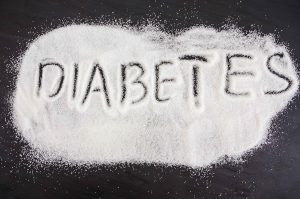
What Is Insulin and Its Role in the Body?
Many of us have heard about insulin, but do you know what it is and what it actually does in your body? This knowledge is important not just to protect yourself from the development of diabetes but also if you want to keep a healthy weight, regulate your nutrition, and understand the processes that go on inside your organism every time you eat or drink something.
Insulin is a vital hormone. It is insulin that promotes the absorption of glucose by cells. Glucose, in its turn, is the source of energy, crucial to keep us active. It opens the cells for glucose and thus facilitates the penetration of energy into the cells and normalizes blood sugar.
Every time you eat or drink something, beta cells of the pancreas produce a certain amount of insulin, necessary to regulate blood glucose. This is called the basal secretion of insulin. People with diabetes mellitus type 1 or type 2 do not have enough insulin sufficient to regulate blood sugar levels and have to take insulin medications for this purpose.
History of Insulin
Diabetes causes lots of discomfort for people who should inject insulin every day to control their blood glucose levels. However, the situation before the discovery of this hormone was much worth it, as people with diabetes had to stick to a strict diet when they couldn’t eat more than 500 calories a day.
Luckily for them, in 1921, the Canadian medical scientists from Toronto university Frederick Banting and Charles Best presented to their colleagues the discovered protein – insulin hormone, which they have secreted from the atrophied pancreas. In 1923, Banting was rewarded with the Nobel prize in the medical field for discovering insulin.
After that, a number of companies in Canada, the USA, and Europe have received a patent for the manufacturing of insulin, including Eli Lilly and many others.
This is how the era of insulin medications for diabetes care and insulin resistance began, and now, we have such a great variety of brands and ways to administer the hormone: insulin in vials, insulin pen, and insulin pump.
How Does Insulin Regulate Blood Glucose Levels?
The primary function of the insulin hormone is to manage blood sugar levels by helping the cells of our body absorb it for their energetic needs.
As we do not always consume the exact amount of glucose our organism needs, and sometimes it may exceed the required level, insulin signals the brain about the necessity to store the excess sugar. As a rule, it is accumulated in the tissues of the liver as well as in the adipose (lipid) tissue. When the level of sugar drops or there is a need for a quick additional source of energy (for workouts, intense physical work or activity, as well as a mental activity), or when we are stressed, the organism will use this “depot”.
What else Does Insulin Do in the Organism?
Except for regulating blood glucose levels in the organism, insulin hormone is responsible for many other vital functions, for example:
- enhancing the absorption of amino acids by cells (especially leucine and valine);
- enhancing the transport of potassium ions into the cell, as well as magnesium ions and phosphate ions;
- enhancing DNA replication and protein biosynthesis;
- enhancing the synthesis of fatty acids and their subsequent esterification: in adipose tissue and in the liver, insulin promotes the conversion of glucose into triglycerides; with a lack of insulin, the opposite occurs – the mobilization of fats.
- anti-catabolic effects:
- inhibition of protein hydrolysis – reducing protein degradation;
- reducing lipolysis – reducing the flow of fatty acids into the blood.
As you see, insulin’s role in our bodies is more than significant, so we should take care to maintain a normal level of insulin in the bloodstream for the proper functioning of our systems and good health.
What is the Normal Level of Insulin in the Blood?
We have already mentioned that a low level of insulin in the blood is dangerous for our health, but a too high level of this hormone does to us no better. While the lack of insulin leads to too much glucose in the blood and the possible threads of developing the following medical conditions:
- heart diseases
- kidney damage
- nerves damage
- skin diseases
- problems and even loss of vision
too high level of insulin affects glucose levels which leads to the oxygen starvation of the cells, especially the brain and nervous system with further damage of the organs and general functioning of the organism. This condition is known as hypoglycemia.
It can develop as a result of incorrect insulin dosing and can occur only in people who take insulin therapy.
That is why it is crucial to control blood sugar and the level of insulin. However, it is not that easy to identify the level of the hormone in the blood correctly. To do this, the doctor compares the level of insulin with the level of blood glucose on an empty stomach and after a certain time after having the last meal.
An interesting fact is that the variation rate of the level of insulin in healthy people is quite wide: from 3 to 20 μU ml for adolescence and up to 25 μU ml for adults, and from 6 to 27/36 μU ml for pregnant women and women after 60. So, just a professional doctor may check and tell whether your level of insulin is in the norm or not.
How to Lower Blood Insulin?
There are certain ways to help you regulate insulin and insulin resistance in the body. Here are a few of them:
- medications for reducing insulin resistance
- regular sports and physical activity
- normalization fo the night sleep
The last point is especially essential if you want to normalize the level of insulin in the body and prevent the development of diabetes mellitus type 2. The point is that a wide range of hormones production, including insulin, begins during the nighttime during the deep sleep phase. That is why when you go to bed too late or do not get enough hours of sleep, the hormonal level drops, and you may develop many diseases such as insulin resistance and others.
Diet also plays a crucial role here, and reducing sugar and carbonated drinks while replacing them with fresh fruits and vegetables would be a great way for losing weight and controlling blood sugar levels.
Insulin for Diabetes Mellitus Type 2 and Type 1
The discovery of insulin hormone has opened incredible possibilities for treating diabetes and eased the life of patients with diabetes who previously were forced to follow a strict diet in order to control their blood glucose level.
As you may know, there are 2 types of diabetes mellitus: type 1 and type 2. Type 1 diabetes mellitus is also called insulin-dependent diabetes as their pancreas produces no or too little amount of insulin hormone insufficient to control glucose levels. So, they do not have another choice except for taking insulin injections every day. People with diabetes mellitus type 2 (which is also called insulin-independent) are luckier (if we can say so) because insulin therapy is not compulsory for them. In the beginning, they can make do with diet and physical activity. However, in many cases, lifestyle changes may not be enough, and the doctor prescribes some kind of insulin.
Rapid-acting insulin. This type of insulin is characterized by a fast onset of action which starts approximately in 15-20 minutes after the administration and lasts for about 3-4 hours. Here are the most popular brands of this type:
- Humalog (Lispro)
- Novolog (Aspart)
- Apidra (Glulisine)
- Fiasp (Aspart)
In most cases, these medications should be administered before the meal.
Short-acting insulin is characterized by a short action of the medication that lasts on average from 2 to 8 hours. They take longer to start working, approximately 30-60 minutes, and should also be injected before the meal. Here are some of the brands:
- Entuzity (insulin regular)
- Humulin R (insulin regular)
- Novolin GE Toronto (insulin regular)
Intermediate-acting insulin. The onset of action of these types of insulin starts in 1,5-2 hours after the injection, but the overall effect lasts up to 18 hours. The most popular brands are:
- Humulin N (insulin NPH)
- Novolin GE NPH (insulin NPH)
Long-acting insulin. These types of insulin are represented by the following brands:
- Basaglar (Glargine)
- Lantus (Glargine)
- Levemir (Detemir U-300)
- Toujeo (Glargine U-300)
- Tresiba (Degludec)
Diabetes treatment with any of these insulins is characterized by the late onset of action that starts no sooner than in 2 hours after the injection, but the glycemic control lasts up to 24 hours and even more.
Any of these brands of insulin treatment you can buy at our online pharmacy Insulin Store. To place an order, you will have to provide a valid prescription for the chosen medication. We will not ship your order without a valid prescription from the doctor.
Insulin Hormone for Blood Sugar: To Sum Up
The main thing to know about this hormone is that insulin helps to control blood glucose levels, and this information is useful not just for people with diabetes but for healthy people as well as diabetes type 2 can be developed as a result of stress, sedentary lifestyle, poor diet, and many other harmful habits.
If you already have developed this medical condition, fortunately, you can get more insulin by injecting any of the described medications. You can choose any type of insulin. Your doctor will provide a medical examination of your blood glucose level, lifestyle, daily activity, other medical conditions (age, pregnancy, digestive and kidney diseases, etc.) that may have an impact on the needed level of the hormone.
I hope this article was interesting and useful for you!!! Stay healthy and see you in the next posts!!!

